Charging an electric vehicle in public can range in price from free to very expensive. When we recently charged a new 2022 Chevrolet Bolt at an EVgo DC fast charger (DCFC) in Bedford, NH, we discover the pricey end of the spectrum can be more than it would cost to fuel a "gas-guzzling" V8-powered muscle car.
Related Stories:
Big Mistakes To Avoid When Charging an EV In Public
Many Public DC Fast Chargers For Electric Vehicles Are Slower Than You’d Think
Quick Stops At Level 2 Public Electric Vehicle Chargers Are Worthless
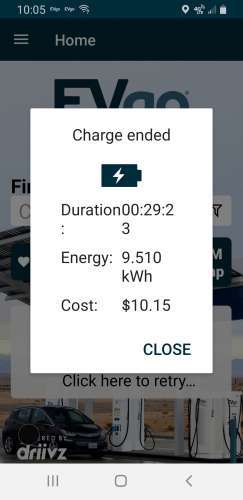
$10.15 To Add 34 Miles of EV Range
We charged up a Chevy Bolt using the EVgo DC fast charger, and the bill was $10.15. That amount of money added 34 miles of range to the Bolt. So, the cost per mile of energy was 30 cents per mile. Let’s compare that to a 2021 Dodge performance car we tested the prior week.
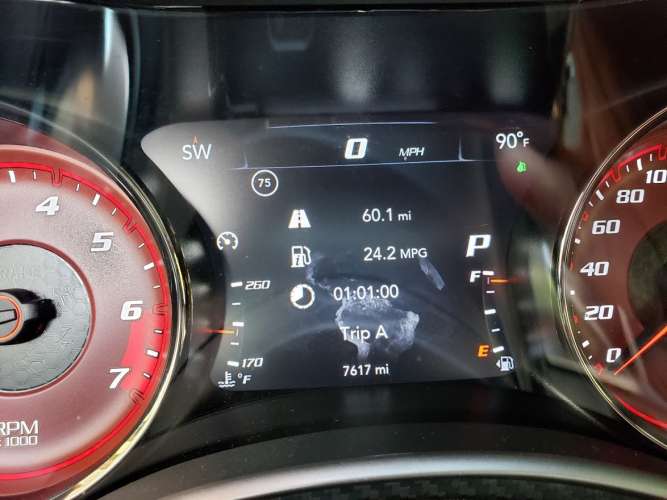
The Dodge had 797 hp, and it returned a combined fuel mileage of 24 MPG in our use on the same route we tested the Bolt. We paid $2.90 per gallon for the gasoline it uses. Doing some “goes in’tahs,” the cost per mile for energy in the muscle car turns out to be 12 cents. Thus, the cost per mile to energize the Bolt was roughly triple what the V8 gas-powered car cost us.
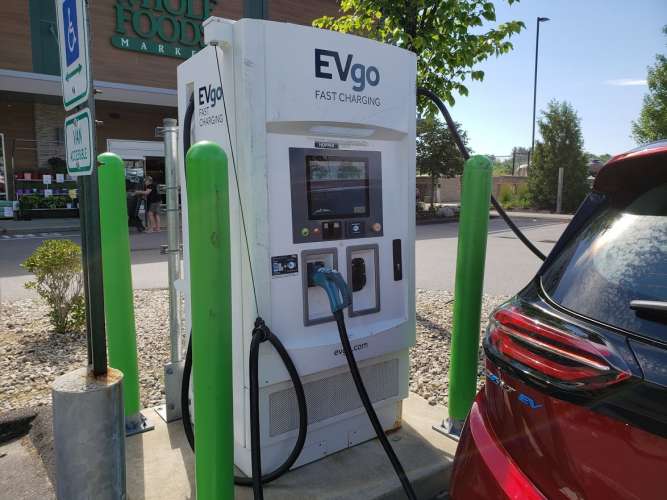
Charging Etiquette
When charging in public one is supposed to quit charging when one’s EV reaches 80% state of charge. The reasons for this are two-fold. First, the rate at which charge can be added to an EV battery is more rapid below 80% and much more time-consuming as the battery reaches full. Second, EV chargers are in very short supply. We need to ration them.
On my route from the metro Boston area to the lakes region of New Hampshire, there are exactly zero public DC fast chargers. In order to charge at a DCFC, I took a slightly longer by time route to swing by one of only two DCFC charging spots in that area. Google “Henniker NH DC Fast Chargers” if you want to see what I mean about no chargers. I needed to top-off in order to complete the 200+-mile route I was making. So, I broke charger etiquette, and I charged to full.
I also charged at the DCFC because I wanted to test my EVgo membership RFID card and account and see how long the DCFC took to add back miles. Both were successful tests.
Charging For Free
Coincidental to my test, GM was running a free-to-charge promotion day during the week I had the Bolt. I think free anything is great, but I always wonder, what’s the hidden agenda? If charging up an EV is very affordable anyway, why does there need to be a promotion to make it “free?” If Dodge offered free gas to muscle car owners, I suppose folks would jump at the chance for a free fillup. But why make EV charging free?
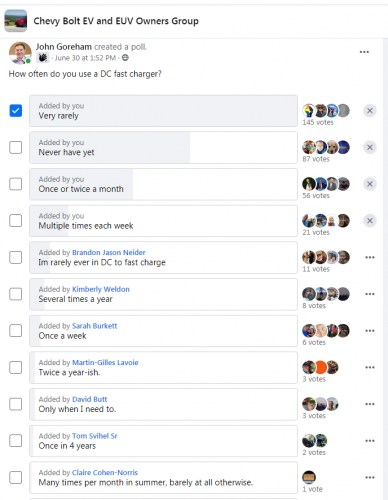
The answer is to get EV owners to the chargers and have them try out the experience. You see, when we poll owners of EVs, most report that they only charge at home, and almost none report using DC fast chargers.
When I plugged into the EVgo DC fast charger, I hadn’t thought about the cost. After all, we constantly hear how affordable EVs are to power up. I have done the math at my own home, and I know that the cost is typically about five to seven cents per mile of range I add back on my home charger using my relatively pricey Boston-area electricity. $10.15 for just 34 miles was a “shock.” Get it, shock. Bet you never heard that in an EV story before.
Related Story: New Hampshire Innkeepers Demonstrate EV-Driving Guest Best Practices
Feel free to tell us in the comments below what you typically pay to charge in public at a DC fast charger and how that cost compares to your cost at home.
John Goreham is a long-time New England Motor Press Association member and recovering engineer. John's interest in EVs goes back to 1990 when he designed the thermal control system for an EV battery as part of an academic team. After earning his mechanical engineering degree, John completed a marketing program at Northeastern University and worked with automotive component manufacturers, in the semiconductor industry, and in biotech. In addition to Torque News, John's work has appeared in print in dozens of American newspapers and he provides reviews to many vehicle shopping sites. You can follow John on TikTok @ToknCars, on Twitter, and view his credentials at Linkedin
Set as google preferred source


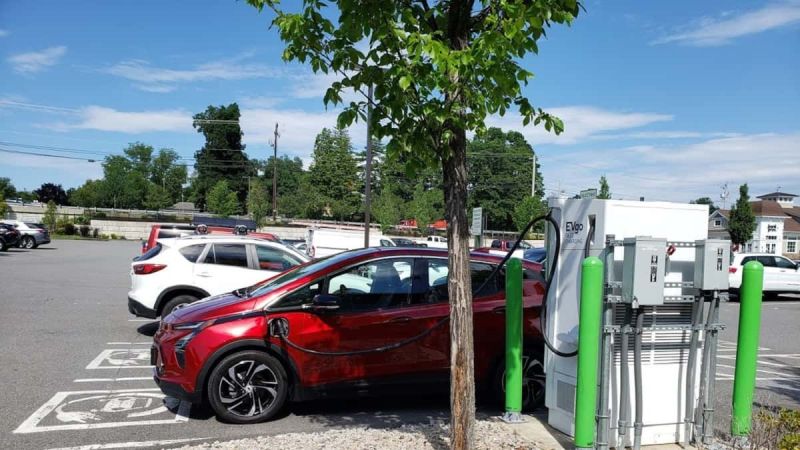






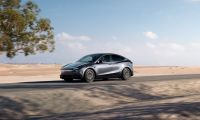
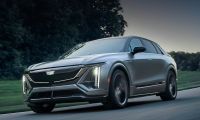

Comments
Ditto, 09 C6 Penncy to
Permalink
In reply to My Corvette did even better by Gcrosby (not verified)
Ditto, 09 C6 Penncy to Florida 30 plus always.
it doesn't get 24mpg if you
Permalink
In reply to "The Dodge had 797 hp, and it by Mark Day (not verified)
it doesn't get 24mpg if you drive it like an 800hp car lmao
well, here in Europe this is
Permalink
In reply to "The Dodge had 797 hp, and it by Mark Day (not verified)
well, here in Europe this is the normal. home electricity at 30 cent public charging 60-100 cent does not make ev cheaper. webuy it for clean air
THANK YOU!!!! who cares if
Permalink
In reply to well, here in Europe this is by tt (not verified)
THANK YOU!!!! who cares if might ,under perfect conditions save 5 -10 bucks each fillup. I own a Volt and if I just planned my daily trip I drove 80 -100 miles a day only using a 1 1/2 gallon a day. The small savings from gas, you might get want matter when you have to buy sky high insurance policies due to global warming. If we push the economy to solar and other sources the price will come down. As far as coal and oil we will never be not totally dependent on them so they will be okay
I don’t know how the author
Permalink
In reply to "The Dodge had 797 hp, and it by Mark Day (not verified)
I don’t know how the author of this article found a station that charges almost $1/kw.
1) 90% of charging is done at home where I pay $0.07/kw. that’s less than $10 for a full charge! BTW I have solar panels so that’s worse case scenario for me. My MONTHLY electric bill is typically under $10
2) tesla super chargers cost about $0.25/kw. That’s about $20 for a full charge
3) there are free charging stations All. Over. The. Place. My small town has 6! Supermarket : free charging and best parking. Out for dinner: free charging. Haircut: free charging… I would estimate I probably pay around $100 per year to charge my car all said and done
4) When I drive my wife’s Subaru instantly reminded how archaic an ICE vehicle is. Find the key… unlock it… start it…
5) Since getting my Tesla in 2018 I’ve paid zero in repairs. The only maintenance cost are replacement tires at 33k (Agree that’s low miles to replace tires), washer fluid and the cabin air filter
Electric cars are sooo much better and truly are the future. Misleading articles like this just doesn’t make sense to me
Thanks for commenting Gordon.
Permalink
In reply to I don’t know how the author by Gordon (not verified)
Thanks for commenting Gordon. Here's how I found the EV Go DCFC location in New Hampshire. I used Google Maps and located all the of the DCFC from metro Boston to the lakes region of central/southern NH. It's a popular corridor that many New Englanders travel. There was one. So I drove to it. Do you live in south-central New Hampshire? If so, which would you have used. Your other comments about charging are all spot on. I agree with them all. Are the free chargers you point out in the article located near the one I used, and are they DCFC or L2? Your comment on Superchargers is very interesting, but what do Superchargers have to do with public charging? Superchargers are not public. You must own a Tesla brand vehicle to use them, and the subsidy for their electricity pricing is included in the purchase price of the vehicle. Thinking about your repair comment, which brand of vehicle from 2018 would have incurred a repair cost by 2021? Aren't all brands covered for repairs for the first 3 years?
A 797 hp, Dodge, aka a Demon,
Permalink
In reply to "The Dodge had 797 hp, and it by Mark Day (not verified)
A 797 hp, Dodge, aka a Demon, getting 24mpg is just a flat lie. Also that thing has to run off 93 octane, like my car does. That ain't no $2.97 a gallon. I am with you guys when it comes to building charging stations everywhere, but come on... That's what you call loosing credibility.
Have no idea how he came up
Permalink
In reply to "The Dodge had 797 hp, and it by Mark Day (not verified)
Have no idea how he came up with those figures. I owned a 480 hp Scat Pack charger which I drove pretty conservatively. I averaged 18 around town and the only time I averaged 24 was on a 500 mile all highway Trip.
As the story points out, it
Permalink
In reply to Have no idea how he came up by Jim (not verified)
Thank you for confirming the fuel economy I reported reflects your real-world experience. As the story points out, it was a highway trip. Metro Boston to southern NH is mostly Rt 93 North to 89 North. The speed limit is 65 or 55 MPH Then a stretch of one-lane highway on 202 West at 55 MPH. I had to use 295 for a bit to access the charger. That road is mostly 55. These cars are crazy efficient at 55. I've tested every SRT model made up until this past fall. MPG over 20 on the highway is the norm, not the exception, based on my testing. When we take them on track the MPG runs around 10 to 15 MPG.
Very misleading. I own Chevy
Permalink
In reply to "The Dodge had 797 hp, and it by Mark Day (not verified)
Very misleading. I own Chevy Bolt that has a 60kwh battery. I usually charge at home for. $. 08kwh, costing $4.80 to fill up and travel ~230 miles. That equates about 160MPGe. DC fast charging in my are is about $. 041kwr, so the cost to fill would be $24.60 and still get average of ~230 miles or an equivalence of 32mpg based on the price of $3.40/gal of. gasoline. Also, the Bolt is fast, powerful 200HP- 260FP torque, smooth, quiet and requires zero power train or battery maintenance. Hello?
I love my 19 Bolt. Getting
Permalink
In reply to Very misleading. I own Chevy by R Bartho (not verified)
I love my 19 Bolt. Getting battery replacement in 1 week with a fresh 100,000 mile/8 year warranty. Have a level 2 plug in garage and on long trips I use my ICE vehicle. But 95% of my driving is in town or to the Tulsa airport. Acceleration always catches the kid in the Charger off guard!
That's nice, you'll be able
Permalink
In reply to I love my 19 Bolt. Getting by Eddy Lauterback (not verified)
That's nice, you'll be able to throw it in the trash before it hits 150,000 miles, meanwhile my Chevy van that I paid $4200 for is still going fine at 580,000 miles
R Bartho, as the owner of a
Permalink
In reply to Very misleading. I own Chevy by R Bartho (not verified)
R Bartho, as the owner of a vehicle that is having its battery replaced under the most costly per-vehicle recall in history, are you seriously throwing down with "requires zero power train or battery maintenance?" I'm a big fan of the Bolt and Bolt UV, but that seems a little nutty.
I can't believe a 800hp dodge
Permalink
In reply to "The Dodge had 797 hp, and it by Mark Day (not verified)
I can't believe a 800hp dodge get 24mpg. I have a 270 hp toyota and I get 19mpg
I totally get it. But I've
Permalink
In reply to I can't believe a 800hp dodge by L G (not verified)
I totally get it. But I've tested all the hot Dodge cars and they all do great on the highway. Rear-wheel drive, MDS, and tall gearing for the win, I guess. Modern V8s are almost all using less than 8 of their cylinders on the highway. https://www.motortrend.com/how-to/chrysler-5-7l-hemi-mds-lifters/
Sorry, but 24MPG for a 797 hp
Permalink
In reply to "The Dodge had 797 hp, and it by Mark Day (not verified)
Sorry, but 24MPG for a 797 hp car? I mean if you're going to take the rating from manufacturer who drives the car downhill to come up with those numbers... sure. I don't think it's a fair comparison when taking a look at most expensive EV charging rate versus dream MPG of an ICE vehicle.
We didn't take the rating
Permalink
In reply to Sorry, but 24MPG for a 797 hp by Tar (not verified)
We didn't take the rating from anyone. We tested it on the highway, cruise control set. Just like we drove the Bolt. The MPG result is shown in the story as an image. Every Challenger has an EPA-rated highway fuel economy of over 20 MPG.
This is definitely a hidden
Permalink
This is definitely a hidden cost of public chargers, and another advantage (for now) of plug-in hybrids. I get about 40 miles of EV range, but I switch to EV mode when driving in the city, and trade off between EV or gas mode when driving longer distances on the freeway. I always fully charge up at home overnight. When the rates are the lowest at 15 cents per kW. So it would have cost me less than $1.50 to go those same 34 miles. And even running in hybrid mode I manage 40MPG+. I don't have 800HP in the Cadillac ELR, but if you tapped into that car's tremendous performance, you wouldn't have managed 24MPG. In fact it might have switched to gallons per mile. Still, it is eye-opening to see these high speed public charger costs because $10 for 34 miles is nothing even close to being an economical car. And it's a heads-up for those prospective buyers who cannot cheaply charge their EV at home.
The article and replies I
Permalink
In reply to This is definitely a hidden by DeanMcManis (not verified)
The article and replies I found to be missing the point on carbon emissions. We should have implemented hybrids, electric, and charging stations years ago to help with carbon emissions from them heating up the planet. The auto and petroleum industry in America carry big sticks in Washington- so if was going to cost $ and no pressure was put on these industries- then no change to cleaner fuels.
Also the article mentions pennies comparing electric fill up of a Bolt to a 800 hp Dodge- let me ask u- what car running on the road for the next 10 years will emit more carbon? - the Bolt or the Dodge?
I know tbe article was about fuel costs between electric charge vs gas but if u have a 800 hp car that burns gas easily- don't u think that same person can afford to pay $2 more to charge an electric car?
One problem with your logic
Permalink
In reply to The article and replies I by Sean (not verified)
One problem with your logic about carbon emissions: Your "zero" emissions EV isn't zero emissions. Only 17% of electrical generation is renewables. So a smokestack somewhere is spewing out carbon to charge your EV.
I'm not against EVs. My point is nothing is free. Everything has an impact, even EVs.
I saw a scholarly article discussing the low energy density of renewables, and that generating all of energy needs through renewables in the US would require the use of an additional land area larger than Pennsylvania. That's a big impact.
There is a bit of difference
Permalink
In reply to One problem with your logic by Arlo (not verified)
There is a bit of difference beween power generation in your car vs power generation for the electrical grid. Your car is about 18% efficient in turning the potential energy into a gallon of gas into energy for driving, etc...
A natural gas power plant peaks at about 63% efficiency. So while you are correct that there is still emissions being created, its at a much lower rate.
18% we are not still living
Permalink
In reply to There is a bit of difference by Misconception (not verified)
18% we are not still living in late 1800, when the electric car was the leader. The latest technology is easily reaching 55% thermo efficiency. So when take into account the huge carbon foot print the electric car has coming off the assembly line, and you believe putting plant food into the atmosphere is a bad thing. Then don't buy an electric car.
Not to mention that how much
Permalink
In reply to There is a bit of difference by Misconception (not verified)
Not to mention that how much transportation it takes just to get people a gallon or liter of gasoline to the pumping stations.
Actually... According to
Permalink
In reply to There is a bit of difference by Misconception (not verified)
Actually... According to scientific information available, a modern gasoline engine is about 40% thermodynamically efficient. Modern natural gas powered power stations run around 38% to 41% efficient unless they are setup with a waste heat powered turbine at which time they will prove to be possibly as high as 60% thermodynamically efficient. Just recently, Nissan introduced an engine that is over 50% thermodynamically efficient... which is getting closer to diesel engine efficiency. There's still a lot of life left in internal combustion engines. Until they make batteries rechargeable in five minutes and able to consistently run efficiently in ANY ambient temperature, I'll just keep my gasoline powered vehicle with it's much more convenient, easy to use and exponentially more energy dense fuel source. One day electrics will rule, just not because the government says. We have pretty much jumped right from internal combustion engines straight into all electric... Without the infrastructure to support it. And our electric grid is a dubious players wet dream... Not only could someone like Russia or China completely shut the USA electric grid down, they could completely shut down our entire transportation system. More work needs to be done before the whole world switches to electric.
Good point about how
Permalink
In reply to Actually... According to by Lonnie (not verified)
Good point about how environment effects range. Today was a relatively mild summer day where I live; temperature only got to 110. With AC working hard, range decreases drastically.
It's amazing to me how many
Permalink
In reply to Actually... According to by Lonnie (not verified)
It's amazing to me how many people bash electric cars because they think taking more than 5 minutes to "fill the tank" is a deal breaker. How often does the average person drive 200+ miles a day? If you have a garage and an EV, EVERY morning you start with whatever capacity (range) you want up to 100%. The actual miles will vary based on which car/battery you purchase (my Model 3 can get 300 miles). Except for long trips, you spend 0 minutes charging because you charge every night at home. I have made several trips from SF to Lake Tahoe (200 miles and an elevation change from 0' to7000' (summit) to 5000' (lake level) without stopping, and had free charging once I was at the hotel. My daily commute is 32 miles (rt). The only times I've spent waiting for my car to charge is when I drove to Washington state. I found the Supercharger network very convenient on those long trips and, being older, found the 20-30 minute charging stops helpful in relieving the tiredness a long drive brings on. Also all the superchargers have food and restrooms nearby. Lastly, my fuel costs dropped by 2/3rds (went from $145/month in gas to $44/month in added PG&E costs) when I switched to an EV, and gas was much cheaper in 2018 when I switched.
Charging at home is a great
Permalink
In reply to It's amazing to me how many by Spencer Pon (not verified)
Charging at home is a great plus for EV owners who can do so. Your comments on Tesla's private charging network are welcome, but this story was focused on public charging, not charging reserved exclusively for one brand's owners.
Many people do drive 100 or
Permalink
In reply to It's amazing to me how many by Spencer Pon (not verified)
Many people do drive 100 or more miles in a day. And taking mote than 5 minutes to fill up is a deal breaker for many people.
When the electric car comes out that can recharge in 5 minutes at locations on every street corner at the same price as gasoline cars, then you won't need government subsidies and mandates to sell them.
You hit the nail on the head
Permalink
In reply to Actually... According to by Lonnie (not verified)
You hit the nail on the head with that comment.
Since you're focusing on
Permalink
In reply to One problem with your logic by Arlo (not verified)
Since you're focusing on numbers, here's one for you. 4% of all the electricity consumed in the US is done by refineries. Once the refineries produce gas it still needs to be delivered to gas stations. And we burn that gas in our cars, which puts carbon back into the air.
Let's not forget that oil will run out someday.
Pagination